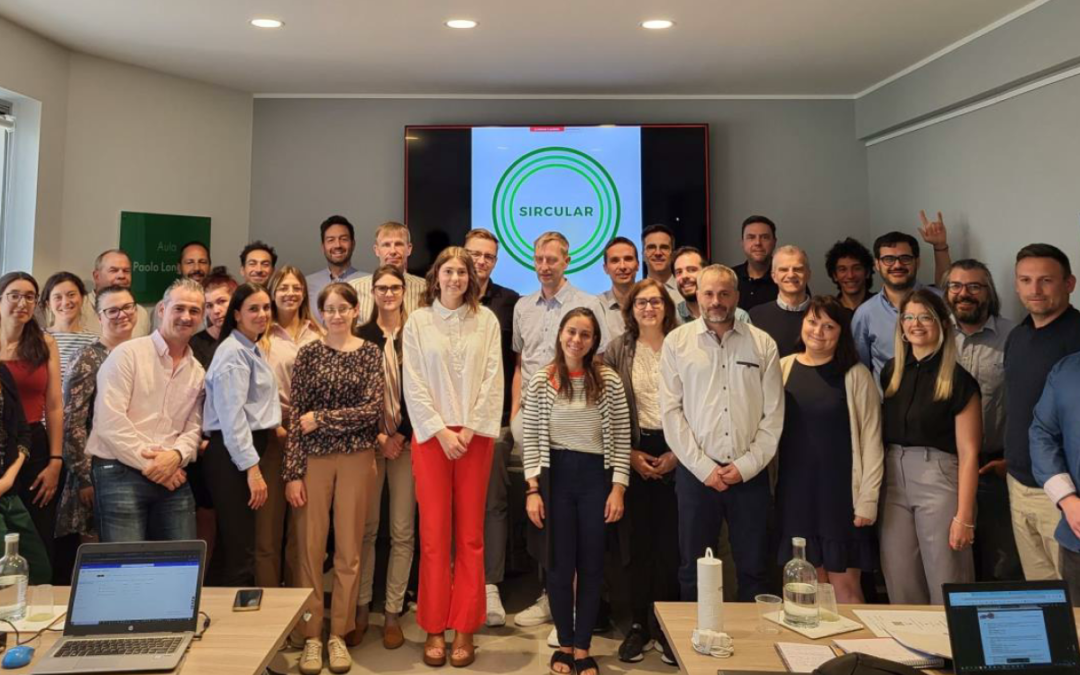The European consortium met on 5 and 6 June in Genoa (Italy) to celebrate the launch of the SIRCULAR project. This initiative, which will last three and a half years, will seek to turn the construction sector around and move it towards a more circular and sustainable industry, in line with the principles of the Built4People partnership.
SIRCULAR’s mission is to overcome the barriers of circularity in the construction sector by reducing carbon emissions and minimising the dependence on virgin materials, and to exploit low-carbon alternatives such as recycled materials. To make this a reality, the project will rely on the development and implementation of integrated digital tools and technological solutions that will test and demonstrate innovative technologies and services in four national clusters, starting in Spain and Estonia, followed by Germany and Greece.
The main objective of the project is to develop tools and services that improve access to information on decarbonisation for all people, both citizens and professionals working in the sector, to easily assess and improve the circularity of buildings. The project solutions will adopt a multidisciplinary approach, integrating technical, economic and social methods with a focus on social and political innovation.
The CARTIF Energy Efficiency team that is part of this project will be in charge of defining the evaluation plan considering circularity and recyclability; defining the KPIs that will allow the evaluation of the actions; establishing the monitoring plans; and making use of BIM methodologies for the installation and commissioning of the materials.
“The project is distinguished by an overall people-centric approach that prioritises the needs and well-being of people and communities,” says Margherita Fabbri, SIRCULAR project coordinator. “We want to adopt a resident-friendly approach, adopting co-creation methodologies to address the citizens’ needs and priorities”.
The European consortium of the project is composed of RINA-C, as coordinator, CARTIF, the Centre for Research and Technology of Hellas (CERTH), GENESIS, Hellenic Passive House Institute (HPHI), National Technical University of Athens (NTUA), ICLEI European Secretariat GmbH, Steinbeis Innovation gGmbH (SIG), Institute of Construction Technology (ITeC), Housing Agency of Catalonia (AHC), Hormipresa, Polytechnic University of Catalonia (UPC), Tallinn Technical University, Balti Vara Ehitus OÜ, the Estonian Union of Cooperative Housing Associations, NGO Tartu Region Energy Agency, ZRS Architects Engineers, Karlsruhe Institute of Technology, Global New Energy Finance S. L, Inlecom Commercial Pathways Company Limited by Guarantee, RIMOND, Rimond Engineering, Procurement and Construction Management, STRESS Scarl.
